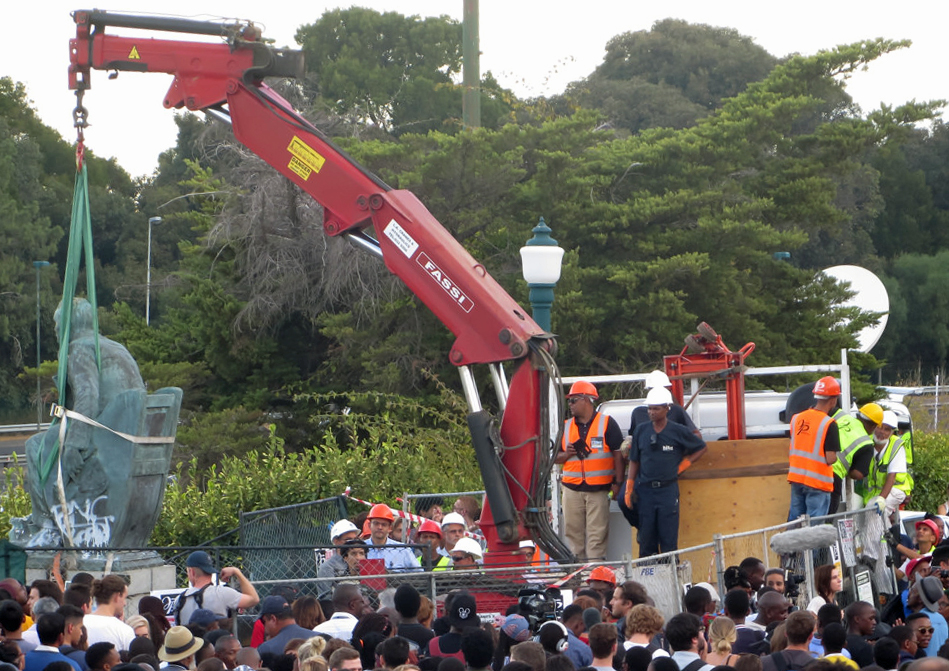University of Cape Town’s battle to tackle a racist legacy
By Linda Nordling,
Nature
| 05. 18. 2021
Photo by Tony Carr via Flickr
In 2015, a giant crane hoisted a 900-kilogram bronze statue of the imperialist Cecil John Rhodes from its plinth at the University of Cape Town (UCT) in South Africa. Rhodes — a nineteenth-century diamond magnate and a representative of the white-supremacist, colonial rule of southern Africa — had bequeathed the land on which the university now stands. The removal of his statue came two decades after South Africa’s first-ever democratic elections and the end of apartheid.
When the crane did its work, Rhodes’s likeness in front of UCT’s main hall was reeking, both figuratively and literally. A month earlier, a student had upended a bucket of human excrement over the statue, lighting the fuse of what was to become known globally as the Rhodes Must Fall movement (see ‘Of protest and potential’). Since the statue fell, UCT has played host to conversations about how to ensure that the institution — one of Africa’s foremost — embraces inclusivity at its very core.
This includes challenging its traditions, which critics argue are rooted in colonial values...
Related Articles
By Alex Polyakov, The Conversation | 02.09.2026
Prospective parents are being marketed genetic tests that claim to predict which IVF embryo will grow into the tallest, smartest or healthiest child.
But these tests cannot deliver what they promise. The benefits are likely minimal, while the risks to...
By Lauren Hammer Breslow and Vanessa Smith, Bill of Health | 01.28.2026
On Jan. 24, 2026, the New York Times reported that DNA sequences contributed by children and families to support a federal effort to understand adolescent brain development were later co-opted by other researchers and used to publish “race science”...
By Steve Rose, The Guardian | 01.28.2026
Ed Zitron, EZPR.com; Experience Summit stage;
Web Summit 2024 via Wikipedia Commons licensed under CC by 2.0
If some time in an entirely possible future they come to make a movie about “how the AI bubble burst”, Ed Zitron will...
By Arthur Lazarus, MedPage Today | 01.23.2026
A growing body of contemporary research and reporting exposes how old ideas can find new life when repurposed within modern systems of medicine, technology, and public policy. Over the last decade, several trends have converged:
- The rise of polygenic scoring...




